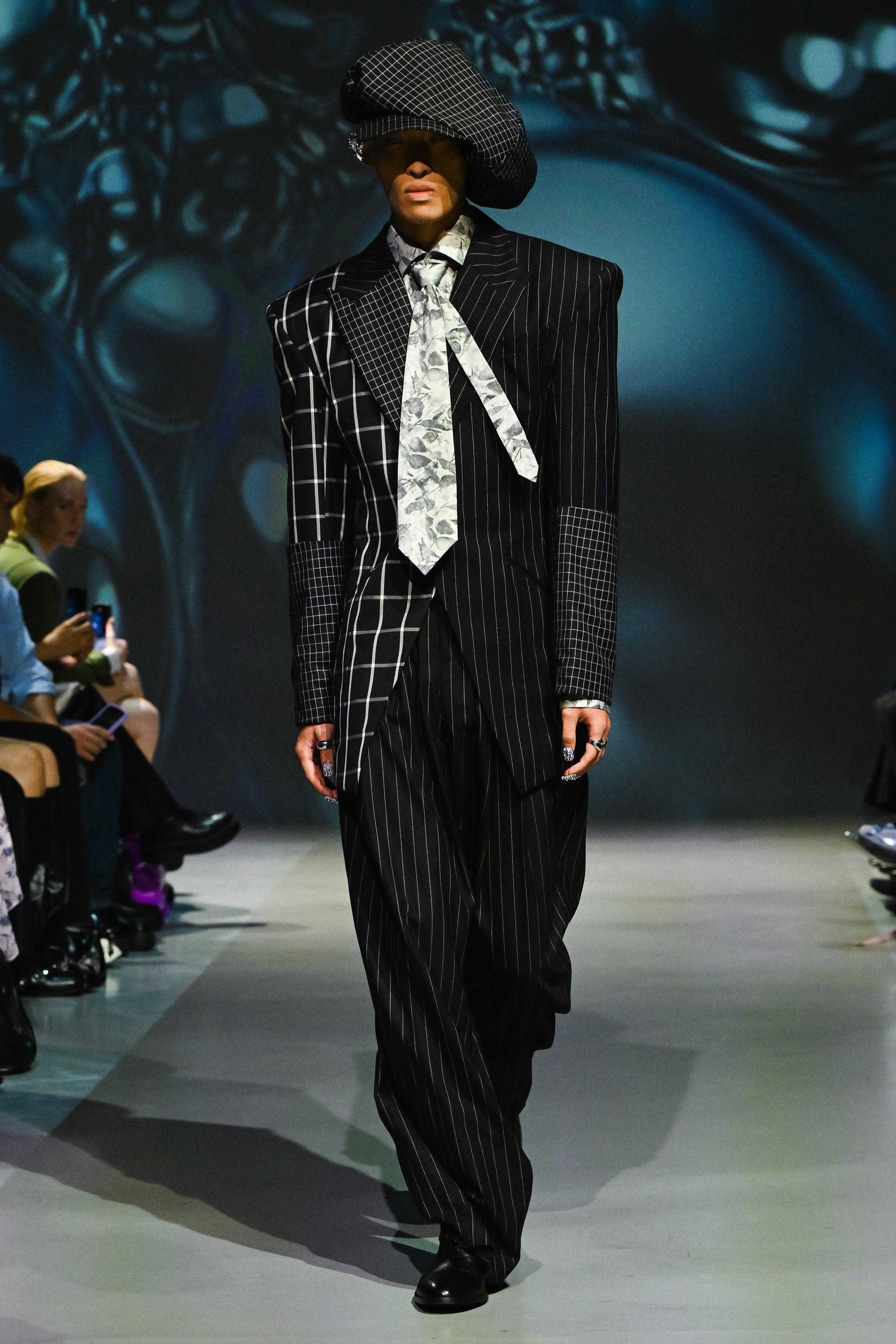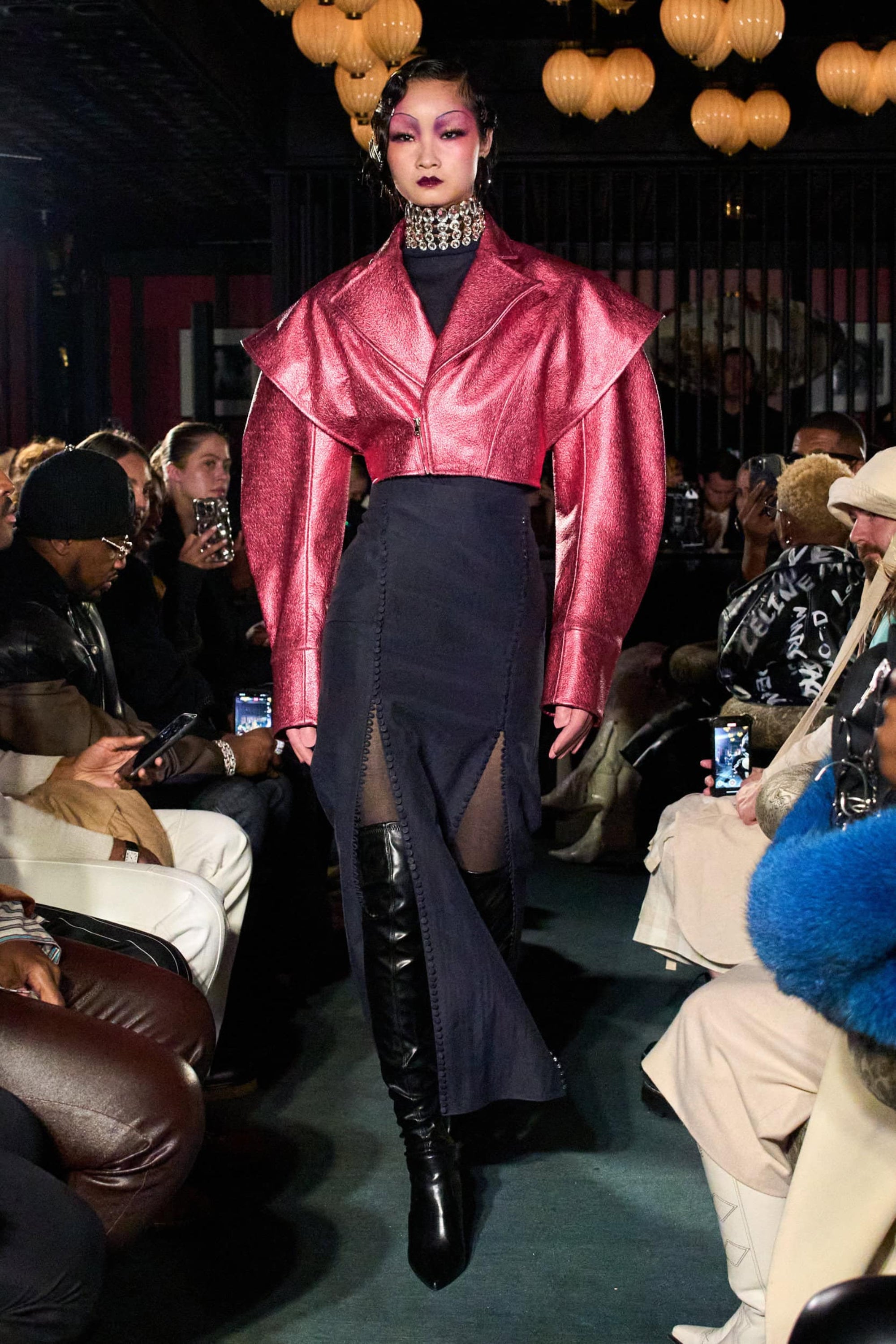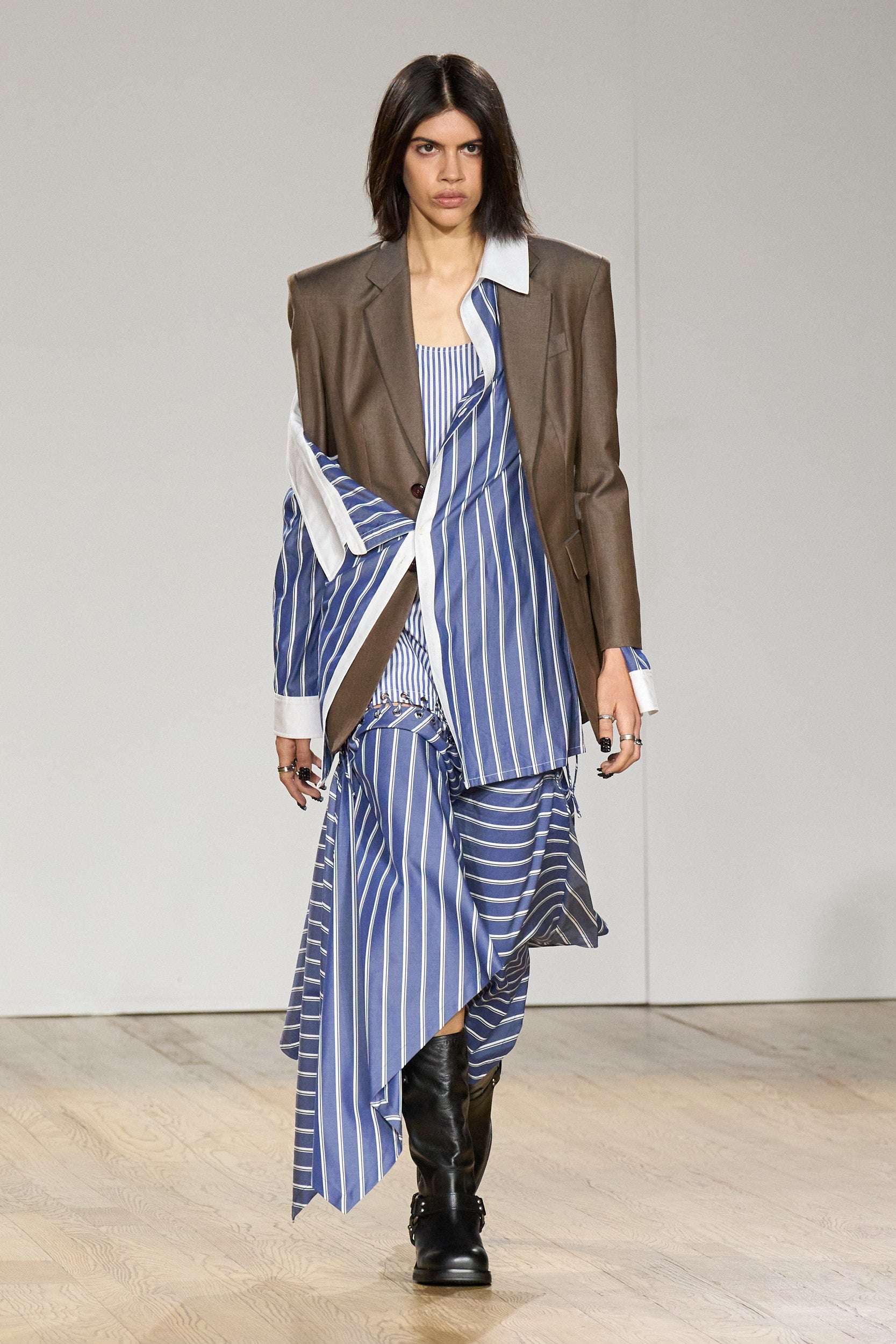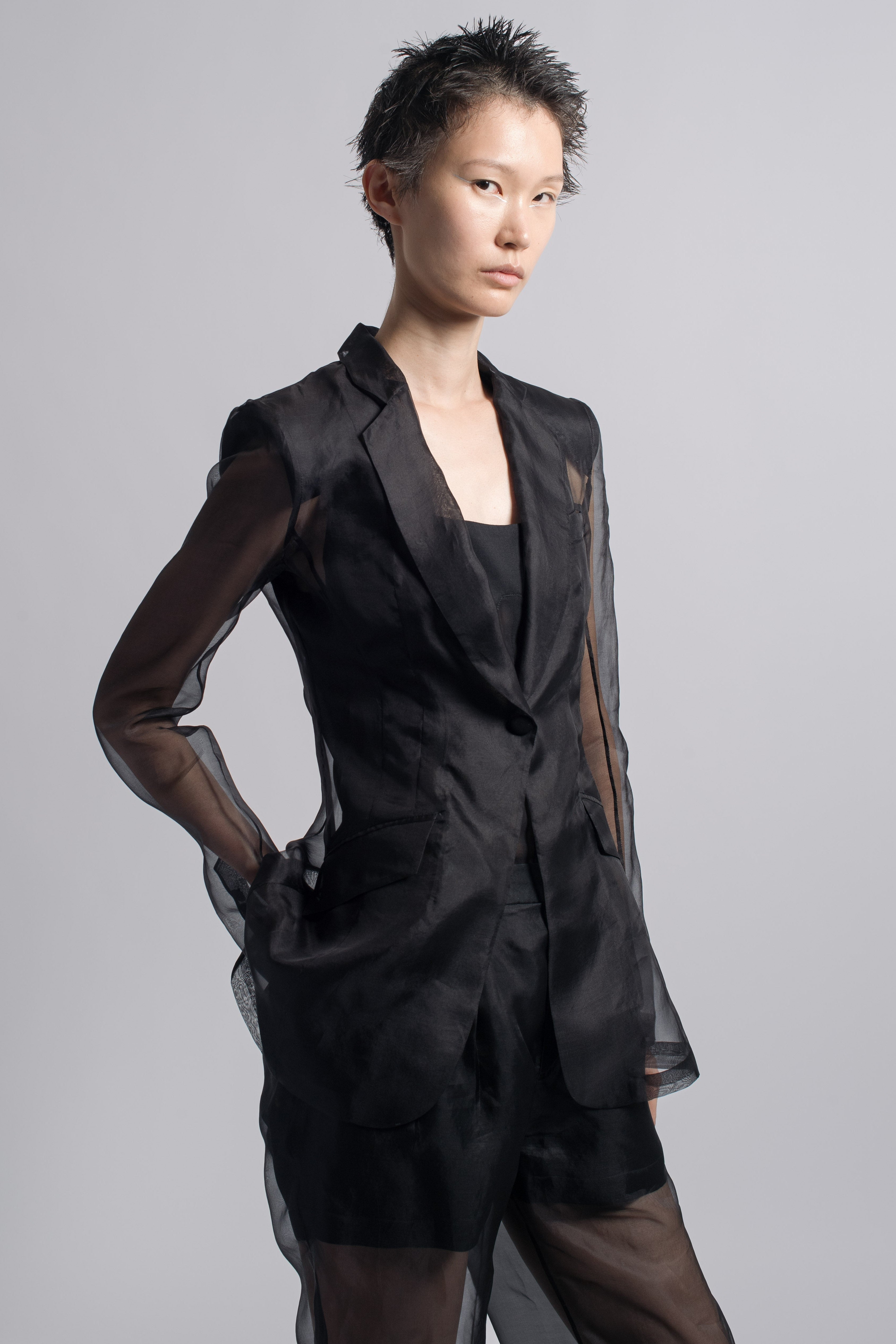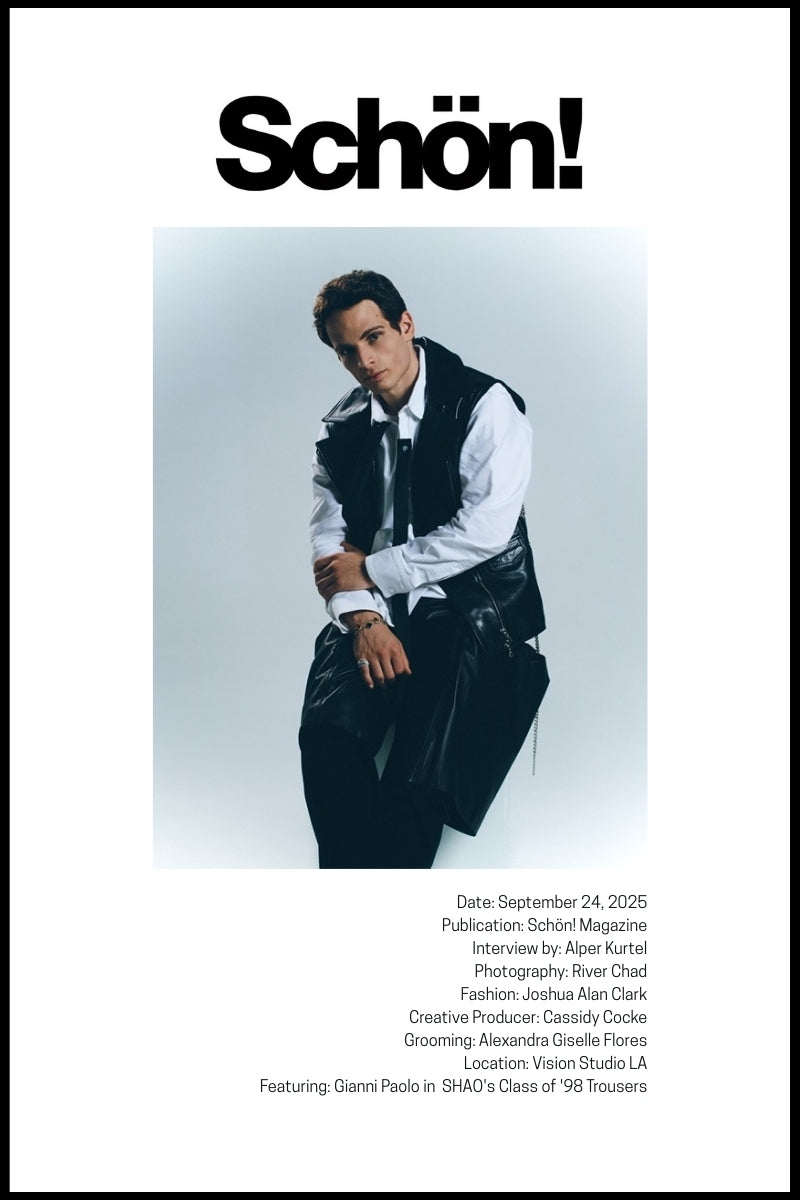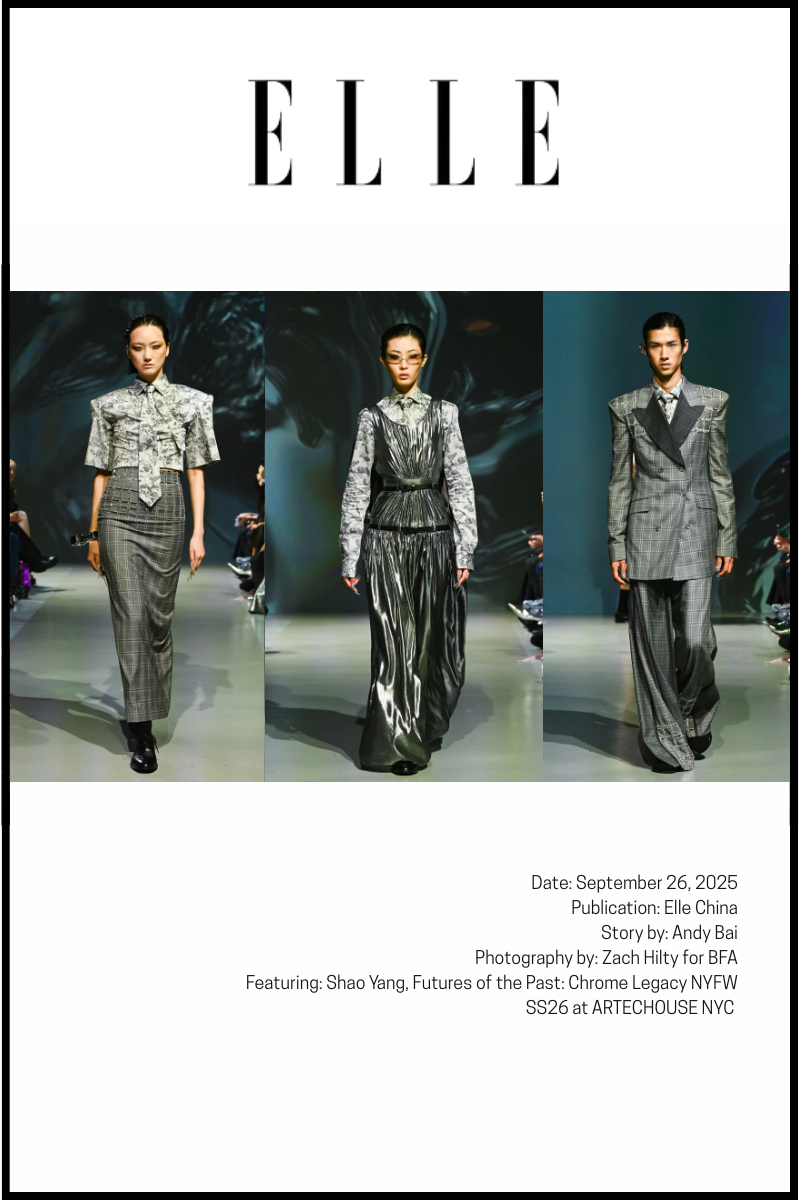At just 29, Gianni Paolo has already lived several lives on screen—and he’s only getting started. Best known to many as Braden in ‘Power’ and ‘Ghost’, Paolo has carved out a space for himself in Hollywood that extends beyond acting alone. He’s stepped seamlessly between television and film, with his recent turn as Marcus in ‘Trust’ showcasing his playful take on naïve and reckless characters.
But Paolo isn’t stopping at performance — he’s also building his career behind the camera as a producer and connecting directly with fans through his podcast ‘The Crew’. Grounded, sharp, and quick to laugh, he’s part of a new wave of actors who refuse to be boxed in, embracing vulnerability and control in equal measure while charting his own unpredictable path through the industry.
Schön! sits down with Paolo to discuss his career so far, crafting characters, and more.
S: You’ve had quite a busy year, and the film ‘Trust’ seems like a big milestone. How did you build the psychological layers of your character, and were there details from your own life or observations that led you to that depth?
When I first read the script, I immediately saw these characters as very naïve and somewhat dumb. In the film, you see how everyone eventually meets their demise. They are small-town criminal types, and I could relate to that because I grew up in a small town myself. You encounter those kinds of people in your environment, so I drew on those observations. With any role, there is always a piece of it inside you. You simply make that part bigger and exaggerate it. Personally, maybe two percent of me is naïve, but Marcus was about seventy-five percent naïve. Most roles I have played carry a reflection of myself in some way. It is also fun to play naïve or foolish because in real life, you rarely act that way. On set, you get to play, explore, and exaggerate, which makes it an exciting experience.
S: Transitioning from ‘Power’ to ‘Ghost’ to film must have been quite the shift. What was the most challenging aspect of that move, and how would you describe the difference in energy between TV sets and film sets?
I have always moved back and forth between TV and film, so the transition did not feel drastic. But the environments are different. On ‘Power’, I was with the same cast and crew for five or six years, so it became like a family. With ‘Trust’, we shot in Mexico City with a completely new crew, which brought both advantages and challenges. In TV, a director comes into what is essentially your home. You have been playing the same character for years, and they are just arriving for one episode. Even if they return for another, it is still your territory. On film, it is entirely the director’s vision. Whatever they say goes. On TV, directors often say, “Here is my idea, but you know the character, so do your thing.” On film, it can be the opposite: too much direction and less room for play. Both situations have pros and cons. Sometimes you want more guidance, sometimes you want more freedom, but the dynamic is always different.
S: I am curious about Sophie Turner. It must have been exciting to share the lead with her. What did working alongside her teach you about acting?
She is a total professional. The way she works is very much how I like to approach acting. I do not take things too seriously. I have never enjoyed working with people who are overly methodical, staying in character all day, making everything heavy. That does not feel fun to me. You can work on serious projects without being miserable. Sophie was a perfect example of that. She was dealing with very serious material, but every day she came to set in a great mood, full of energy, and ready to laugh. Even in the toughest scenes, whether it was crying or spending hours in a water tank, she would finish, walk back to her chair, and still be in the best mood. That balance is rare, and it made the whole shoot enjoyable. I would love to work with her again because it was such a positive experience.
S: You are also advancing in both acting and producing, which is impressive. How do these two roles feed into each other, and do they sometimes clash?
I feel like I have been a producer my whole life. Even as an actor, you are essentially running your own business. Producing just takes that one step further, through reading and writing scripts, connecting people, and finding locations. During ‘Power’, when I was not filming, I would often go upstairs to the production office. Accounting was down one hall, the writers were in another room, and the producers in another. I loved walking from room to room, asking what was going on. If they needed a club for a scene, I would say that I had just been to one and knew the owner, so we could use it. Or if we needed to stage a wall break for a stunt, I would discuss the options with the producers. That involvement always excited me. In a way, I was already producing even while being an actor. Now it is just more formalized, whether it is bringing actors to projects, securing locations, or piecing everything together. Producing has many facets, and I genuinely enjoy being part of each one.
S: I also want to ask about your podcast. ‘The Crew’ has really found its audience. When you think about being behind the microphone versus in front of the camera, what creative differences stand out?
Behind the microphone, you have to be more cautious because it is just you speaking, and things can easily be taken the wrong way. Industry relationships can complicate what you say. Supporting one person might upset another. At first, I was hesitant. I thought Leonardo DiCaprio does not have a podcast, and that is the level I want to reach. But the media is different now. Will Smith is on Snapchat, Jack Black runs a YouTube channel, and everything overlaps. For me, the podcast became another way to connect with fans, go viral, share behind-the-scenes stories, and just have fun.
We have not announced much yet, but we are bringing it back under a new company, and it is going to expand into something much bigger. I am really excited about that. It also feels natural because I grew up in comedy podcasting. Before acting became my living, I was producing and booking for Theo Von and other big podcasts, helping them build from scratch, even running their social media. Podcasting has always been another creative outlet for me.
S: And when do you think it is going to be announced?
Hopefully, in the next two to three weeks. The person we are partnering with is a real mogul, someone who has it all. We are excited to join their community and see how far we can grow this.
S: Looking back at your roles so far, which one made you reflect on your own identity the most, and why?
Definitely ‘Power’. Braden’s life and mine had so many eerie similarities. Sometimes I would read the script and think that it literally happened to me. Even down to the wardrobe: I would walk into the trailer and see my character’s sneakers were the exact same custom Jordans I owned, not just everyday shoes, but special pairs. Playing Braden often felt cathartic because it was so close to home. Other roles, like Marcus in Trust, were completely different, such as a small-town heroin addict, but with Braden, it felt like I was drawing from my own life almost daily.
S: Hollywood can be both thrilling and demanding. As a rising actor, how do you balance control and vulnerability in your career?
It is very tempting to want control over everything, but the moment something does not go your way, you start questioning everything. I have learned to let go. At this point, I just want to enjoy the ride. Many roles I thought were “the one” did not come my way. Later, when I saw them, I realized they were not what I wanted anyway. Vulnerability in this business is hard. It toughens you, but the low points are what make the high points so fulfilling. Early in my career, I was close to big opportunities that did not work out, and it was crushing. But when ‘Power’ happened, everything made sense. It felt like destiny. That is why now I try to embrace the downs as much as the ups, because they are both part of the journey.
S: You are 29 right now, right?
Yes.
S: And when did you start?
I moved to Los Angeles on my nineteenth birthday, but did not start working professionally until I was twenty-two or twenty-three.
S: Finally, looking ahead, what kind of project do you envision for the future? Is there a role or area you would like to explore that might surprise people?
I really want to do a goofy comedy. Even when I take on serious roles, comedy always sneaks in, and directors often tell me to run with it. What I would love is a big comedy in the style of ‘The Hangover’. I admire Bradley Cooper’s career. That movie launched him, and then he transitioned into more serious roles. That is exactly the path I want. Comedy films are not made as often today, but I believe they will return. The industry always moves in waves. People have been predicting its end since the sixties, then again in the eighties and nineties, yet it continues evolving. You simply have to roll with it.







